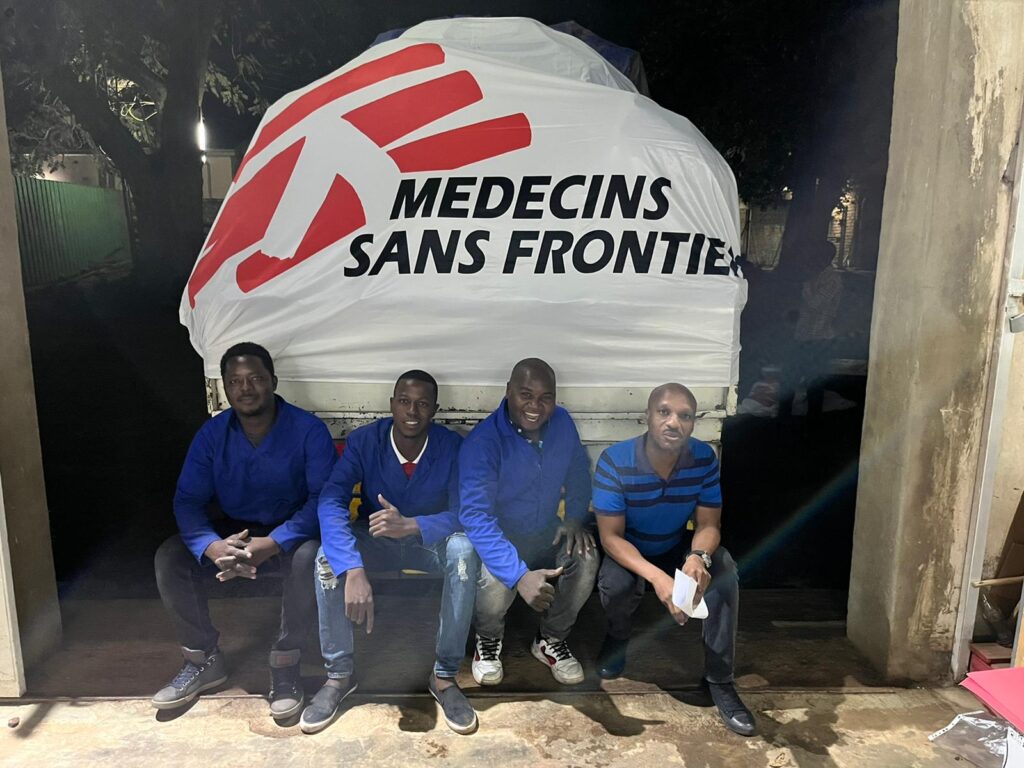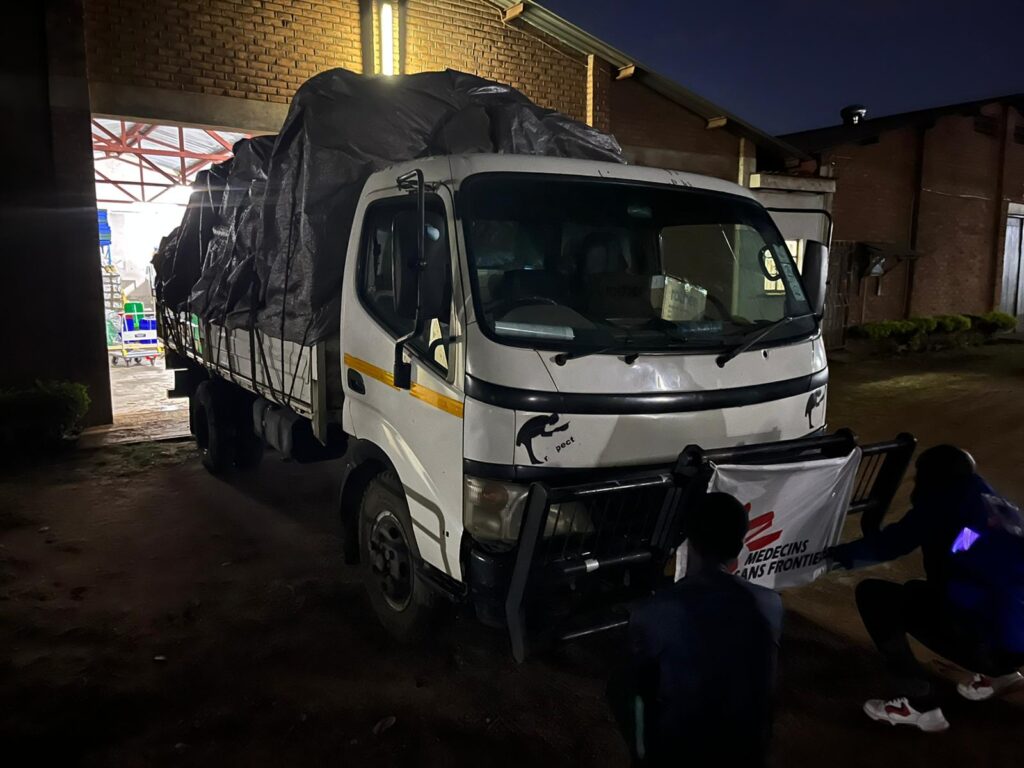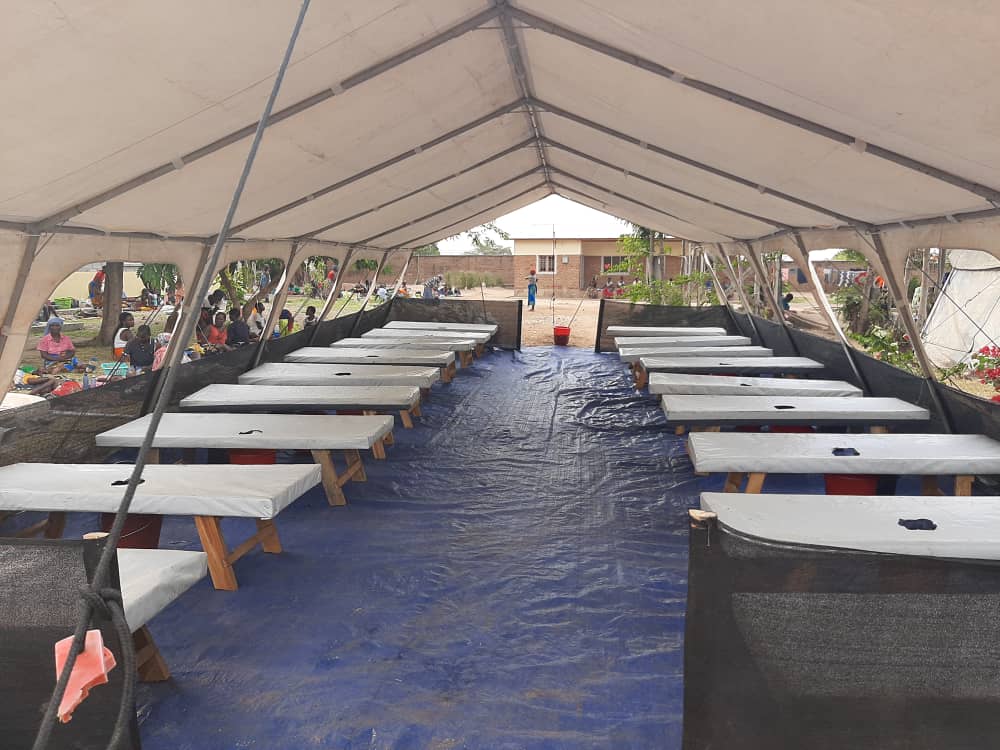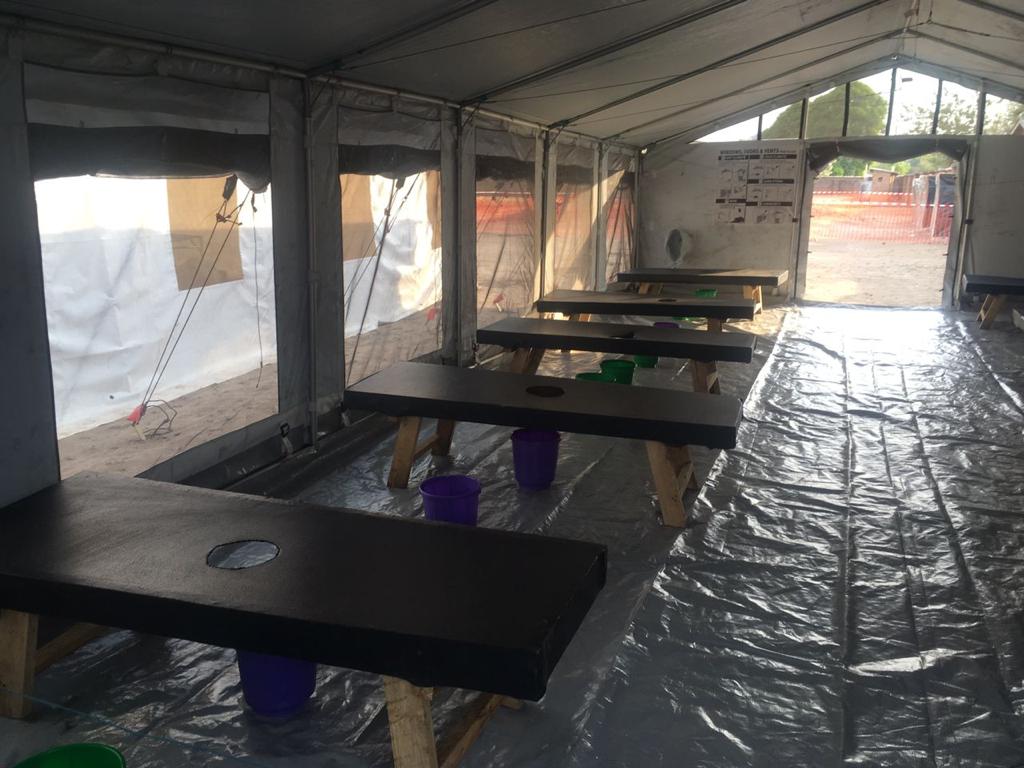
[Blantyre – 15 of November, 2022] The international medical humanitarian organization Médecins Sans Frontières (MSF) strengthens its support to the health authorities by setting-up a Cholera Treatment Unit (CTU) in Cape Maclear with a capacity of 10 beds, latrines, bathrooms, handwashing stations and waste disposal zones.
Since 3rd of November MSF has also been supporting Koche Hospital to contain the spreading of the disease and treat patients infected with cholera. In the context of its support to the Ministry of Health (MoH), MSF had already set-up a CTU at Koche Hospital comprising of 3 admission wards with a capacity of 50 beds, including bathing and latrine facilities, water pumps, laundry area, morgue and waste disposal facilities.

The hospital also received allowances to increase the staffing in the facility. After one week of activity, 324 patients have been admitted and provided with medical care. Water guard, soap and buckets have been distributed to the patients discharged while food is being provided to patients and guardians to avoid transmission onsite.
MSF is also provides critical support to the hospital’s team on cholera patient’s management and donated supplies and consumables that included IV fluids, giving sets, gloves, cannulas, medicines and personal protective equipment (PPE). In addition to this, on-the-job training and mentoring of MoH medical staff on cholera case management is ongoing at Koche Hospital.
Yesterday, MSF installed another 10-beds CTU in Monkey Bay.

Finally, the non-governmental organisation is carrying out health promotion activities in the communities and already reached over 795 households in three neighboring villages (approximately 3975 people) with health and hygiene promotion messages.
“Cholera is an easily preventable and treatable disease if the people are following some basic hygiene rules and come quickly to a health facility in case of symptoms. These are the messages that we are sharing in the communities. For example, we explain to the people that they shall not wash their clothes or bath in the lake, nor drink the water from it. They should use chlorinated water or use waterguard to treat water household level, instead. Once a patient has symptoms such as profuse watery diarrhea, vomiting, thirst or leg cramps they should go quickly to the hospital and avoid contact with their relatives, such as sharing food”, explains Robert Wellemu, MSF Medical Focal Point for in the cholera response.

-END-
Contact
Laurie Bonnaud, Communication Advisor, laurie.bonnaud@paris.msf.org, 09 85 21 51 87


